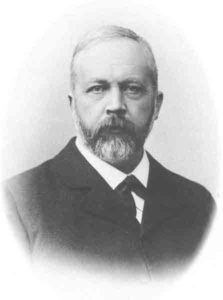Over a century ago, the great would-be reconstructor of early Israelite history, Julius Wellhausen, claimed that “no historical knowledge” of the patriarchs could be gotten from Genesis. Abraham, Isaac and Jacob were merely a “glorified mirage” from later Hebrew history, projected back in time.
Then between the 1940s and 1960s, such scholars as William Foxwell Albright and Cyrus H. Gordon tried to show that the Patriarchal Age as described in the Bible could be set against specific Near Eastern backgrounds, namely the Middle Bronze Age, roughly 1800 B.C. Since the mid-1970s, a small but vocal group of scholars, notably Thomas L. Thompson, John Van Seters and Donald B. Redford, have re-examined some of the material relied on by Albright and Gordon, rightly dismissing a variety of faulty comparisons, especially those between the patriarchal narratives and the social conditions reflected in the Nuzi tablets (15th century B.C.). These scholars failed to deal with the full weight of the evidence, however, preferring to set the clock back 100 years; like Wellhausen, they concluded that the stories of the patriarchs are fictional creations—dating to the Babylonian Exile (6th century B.C.) or later—and are historically worthless.
Read the rest of The Patriarchal Age: Myth or History? in the online Biblical Archaeology Society Library.
